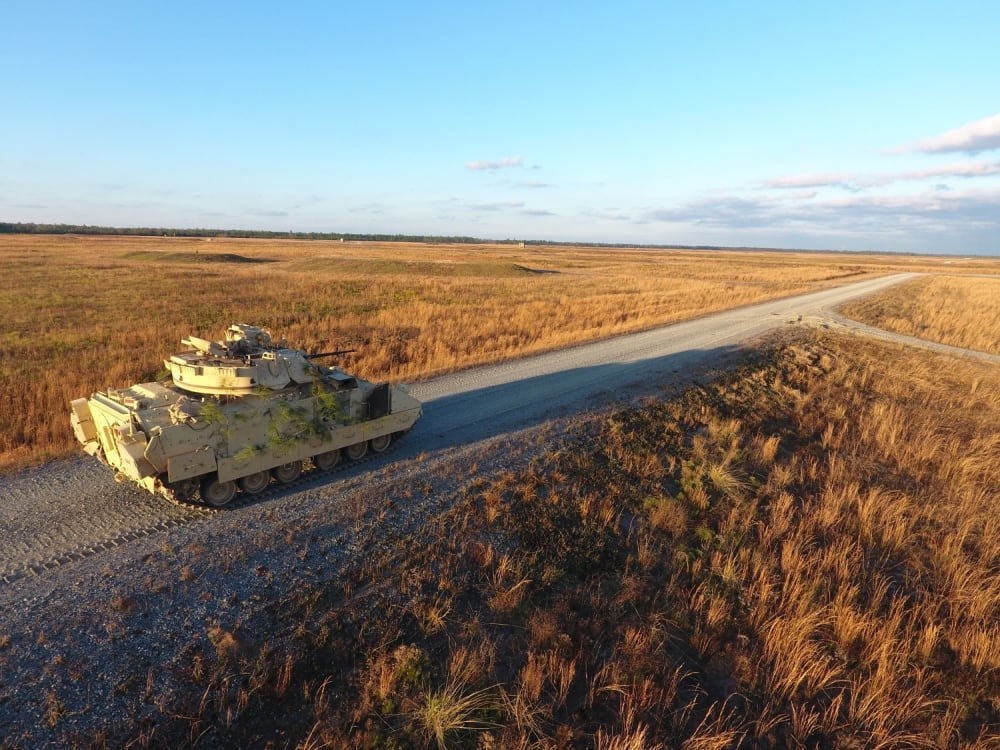It’s back to field training and gunnery for some soldiers at 3rd Infantry Division out of Fort Stewart, Georgia, following a lull in operations due to the coronavirus pandemic, the division commander said Tuesday.
The return to training includes some military police, engineers, logistics and chemical soldiers, as well as troops from the division’s 1st Armored Brigade Combat Team.
There are no upcoming deployments for that brigade. Instead, the intention is to ease those soldier back into training, officials told Army Times, adding that the division’s 2nd Armored Brigade Combat Team is already deployed to Poland and its 3rd Combat Aviation Brigade is in Germany as part of Operation Atlantic Resolve.
A spokesman for the division called the training a “phased return," and said that it will include “individual battalions conducting gunnery operations beginning next month.”
Georgia Gov. Brian Kemp is also planning to allow the state’s stay-at-home order to expire on April 30, which will allow businesses there to begin reopening.
“Other units on Fort Stewart, both 3rd Infantry Division units and tenant units, will also begin limited training in order to maintain operational readiness,” division spokesman Lt. Col. Patrick Husted said. “The phased return to training is conditions-based. We developed a comprehensive plan in order to maintain a balance between force protection and operational readiness.”
There have been more than 20,000 cases of COVID-19 in Georgia, with nearly 4,000 hospitalizations and more than 800 deaths, according to state health department data. However, Liberty and Bryan counties, where much of Fort Stewart resides, has reported comparatively few infections at just 34 and 38 cases respectively.
The division will continue many of the same virus mitigation measures developed by military officials in recent weeks, including social distancing, wearing of face masks, increased hygiene and screening for symptoms.
Up to 25 percent of people with the virus may never show symptoms, Centers for Disease Control director Dr. Robert Redfield has previously warned publicly, meaning symptoms could be a less effective gauge of troop health than originally hoped.
Winn Army Community Hospital spokesman Patrick Young said there is now COVID-19 testing available on the post itself, meaning tests can be returned faster than if they had to be sent away.
“Medical professionals were involved in the initial planning, will be involved in the training, and there are plans in place to respond to issues while in the field,” Husted said.
Division commander Maj. Gen. Tony Aguto said in a statement posted to social media that he made the decision after discussions with installation medical advisers, his staff members and subordinate leaders.
“While the health and safety of our force is my top priority, we need to strike a balance that allows us to meet our training objectives in a way that continues to mitigate the risk of spreading COVID-19 and keeps our community safe,” Aguto said in the statement.
Comments below the social media post appeared mixed, with several Army spouses expressing concern about soldiers coming home to family members following field training. Others disagreed, though, saying that the Army’s mission comes first.
Leaders at 3rd Infantry Division aren’t alone in the push to return to training. Fort Rucker also recently announced that flight training was resuming for those at its aviation schoolhouse this week. The post commander there said that combat pilot production is “mission essential.”
Kyle Rempfer was an editor and reporter who has covered combat operations, criminal cases, foreign military assistance and training accidents. Before entering journalism, Kyle served in U.S. Air Force Special Tactics and deployed in 2014 to Paktika Province, Afghanistan, and Baghdad, Iraq.




